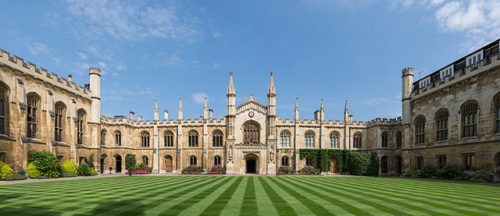By Gabriel Princewill-
Cambridge University has revised it’s free speech policy after a debate on the matter today which culminated in a vote.
The contentious issue of whether to respect or tolerate differing views resulted in a choice for the latter, the semantics underlying the former not sitting well with objectors.
Advocates of the newly adopted ethos are now highly enthused, a few prepared to test the boundaries at this early stage. The vice-chancellor of the elite university is now being urged to re-invite the controversial Canadian professor Jordan Peterson to take up a fellowship in light of a vote allowing “tolerance” of differing views.
An offer of a visiting fellowship for the controversial was withdrawn last year after protests from faculty and students objecting to his proclivity to right wing views.
The transition of the university’s policy from the ‘respectful’ requirement of differing views to the new amendment emphasising “tolerance”, changes everything.
Journalist Toby Young has now said he would be writing, as a director of the Free Speech Union, to Cambridge’s vice-chancellor, Prof Stephen Toope, to request the invitation to Peterson in the wake of Tope’s welcome of the vote this week as “an emphatic reaffirmation of free speech in our university”.
The university’s governing body, Regent House overwhelming majority vote of 86.9% in favour of the changes to the proposed freedom of speech policy, speaks volumes.
It won’t necessarily stop strong objections to certain invitations, but the vote will prevent refusing invitations on the basis of objectionable views which do not fall foul of the law.
Ted Tregear, a research fellow at Cambridge University who was previously branch secretary of a union for academic staff, said the policy had come about due to pressure from the Department for Education and Office of Students.
While he did not support the original policy, he believed that the new wording “made it even worse” and had been used by some people to “to rehash a kind of moral panic about free speech”.
“I am particularly disturbed personally by the notion that once you have invited someone then you can’t decide not to invite them,” he said, giving the hypothetical example of how conference organisers’ hands might be tied in cases where it emerged that an invited participant planned to use it as an exercise to air easily debunked, pseudo-scientific, racist positions.
A spokesperson for the University and College Union (UCU), a union representing more than 120,000 academics and support staff, said: “Academic freedom and freedom of speech within the law is absolutely vital in any civilised society.
“It is crucially important that our universities stand against any attempts to curb the freedom to challenge opinion and explore sensitive issues, including through protest.

